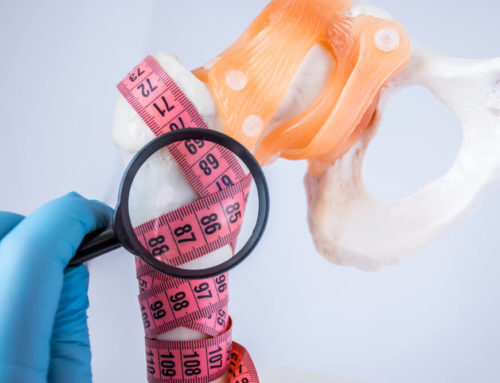From the moment you find out you are going to be a new parent, there are a million questions you will have before your prenatal visits. And yes, you will have a lot of them. Like, what will happen at each of your prenatal appointments, what prenatal screening should I expect, what happens at each prenatal visit, and what your prenatal appointment timeline looks like.
In order to give you a few ideas of what to expect at these appointments, we are going to talk about what happens at each prenatal visit. We’re also going to break down the timeline for your prenatal appointments and each milestone you experience during your pregnancy along the way. This way, you will be familiar with everything and know what should happen at each prenatal visit.
Of course, first things first. For all of your prenatal appointments and visits, you will be seeing an obstetrician (OB). These are the doctors that specialize in pre and post-natal care. It is important you feel comfortable with your OB and can ask each and every question you have.
Let’s Take a Look at a Typical Prenatal Appointment Timeline
 Typically after a positive home pregnancy test, your OB will have you come in to conduct a blood test to confirm your at-home results. Once that has been confirmed, your first prenatal appointmen will be scheduled for about eight weeks into your pregnancy.
Typically after a positive home pregnancy test, your OB will have you come in to conduct a blood test to confirm your at-home results. Once that has been confirmed, your first prenatal appointmen will be scheduled for about eight weeks into your pregnancy.
Even before this first prenatal visit, start gathering any questions you have for your OB so they can answer them when you come. There are a few other things you may like to begin doing as well. For example, you might start taking prenatal vitamins and cut back on caffeine. And there are other things you should stop engaging in, including any behavior that could potentially impact your baby’s health.
Your First Trimester Visits (8 Weeks and 12 Weeks)
During your first prenatal visit, your OB will get a good idea of your and the child’s father’s medical history. A comprehensive medical history will look at elements like mental health, gynecological, and obstetrical histories. It will also include genetic conditions in either family. They’ll also ask what types of over-the-counter or prescription medications you use to see how they could impact your pregnancy and vice versa.
You will also have lots of blood work done. Blood work tests check on the basics, like your hCG (pregnancy hormone), as well as blood sugar and RH factor. During this bloodwork, other screening is done to see if you carry any genes for inherited conditions. If you carry genes for genetic disorders, it usually won’t be a surprise. Some of this prenatal screening is routine, but there is additional testing you can request to check for other conditions.
Something to look forward to at these visits is getting to hear your baby’s heartbeat. Early on in your pregnancy, your OB might do this using a transvaginal ultrasound wand. If you are unfamiliar, it is no different than a typical pap, and what’s better, you get to hear your precious little one’s heartbeat. Your OB will also confirm your expected due date.
At your second appointment, during your first trimester, another ultrasound is done to hear your baby’s heartbeat. The second ultrasound is done externally on your abdomen. Sometimes you’re able to see the heartbeat and hear it, which is an incredibly exciting time getting to see your baby for the first time.
Your Second Trimester Visits (16, 20, and 24 Weeks)
During your second trimester, there will be more prenatal screening. These appointments are even more exciting as you begin to experience more and more tangible symptoms of your pregnancy. You’ve likely felt quickening. Which is a term used to describe when you first feel your baby move. Also, if you are interested in knowing, by this time, an ultrasound can usually tell you your baby’s gender.
This ultrasound is much lengthier than the first. Typically the appointment takes about an hour. Your ultrasound technician will capture your baby’s specific organs and structures, measuring their length and width to confirm an accurate timeline and due date in your pregnancy.
There is optional testing and screening offered in the second trimester called the quad test. This test looks for four different factors in your blood work that can give your provider an idea of whether or not your child might be born with any defects or live with Down’s Syndrome. Again, this testing is optional but is recommended for different women depending on age and lifestyle factors.
Third Trimester Visits (Every Two Weeks From 28-36, and Once per Week 36 Weeks Until Birth)
 As they say, you are now in the home stretch! Technically once you are 37 weeks into your pregnancy, your baby is considered full term. By this point in the third trimester, all your testing and screenings have wrapped up. These final appointments are to prepare for your baby’s arrival.
As they say, you are now in the home stretch! Technically once you are 37 weeks into your pregnancy, your baby is considered full term. By this point in the third trimester, all your testing and screenings have wrapped up. These final appointments are to prepare for your baby’s arrival.
A form of this preparation, called nesting, usually sets in around this time. Ironically when you start to really feel a drain on your body and your energy during this time is when your instinct to get your home, body, and headspace ready for the arrival of your new edition.
Choosing the Right OB Provider Will Help You Feel Prepared
As we’ve said, this is what you can expect a typical prenatal appointment timeline to look like. Choosing the right OB provider will give you confidence, reassurance, and knowledge about what happens at each prenatal visit. You can do all the online research you want, but you might concern yourself if you only see worst-case scenarios. Likewise, if you or your partner have specific genetic predispositions but don’t know about them, you might not consider challenges that could potentially lie ahead for your family.
Having an OB who explains why different tests are conducted and what different screens are for is essential in building confidence in your patient-doctor relationship. Today we focused on what a typical pregnancy and a typical prenatal experience might be.
Having open and honest conversations with your OB will ensure a smooth and enjoyable pregnancy for you and your little one. So, are you ready to find a provider who gives you confidence in your doctor-patient relationship? If you are looking for a doctor to pay special attention to your needs and provide you with individualized care, look no further. Request an appointment today.










